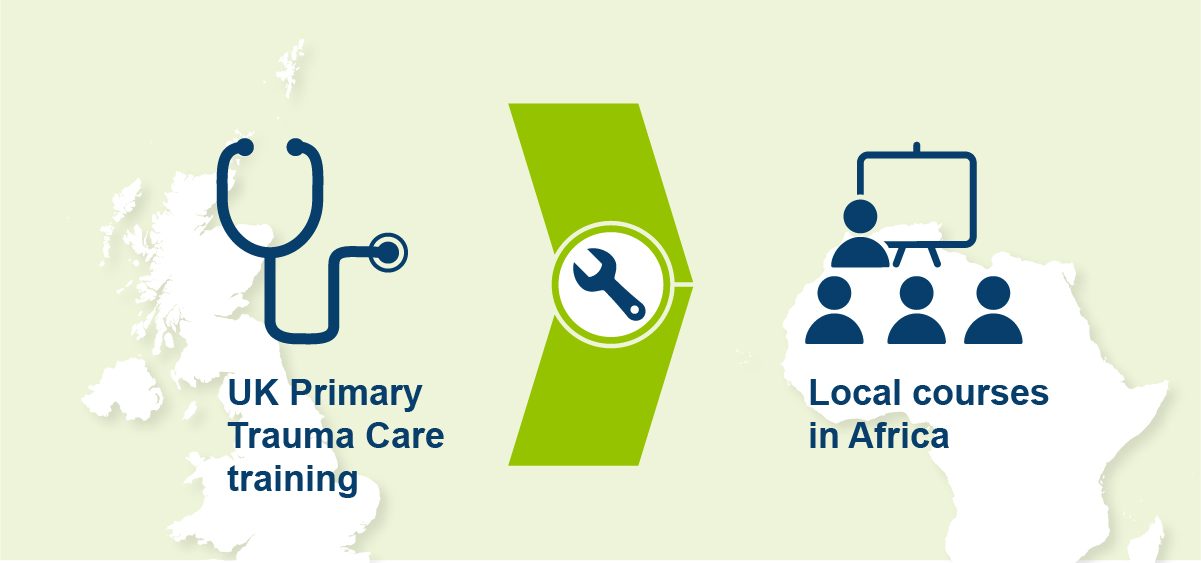Knowledge and clinical confidence improved after Primary Trauma Care training
This article is part of an AOAF educational series featuring recently published studies and information on trauma and injuries, particularly relevant to Africa and Asia.
In 2012, the College of Surgeons of East, Central and Southern Africa (COSECSA) collaborated with the University of Oxford in creating a multicountry partnership program ”“ the COSECSA-Oxford-Orthopaedic Link (COOL) ”“ to improve trauma management training within the region. The program has delivered Primary Trauma Care (PTC) training in trauma management to nine Sub-Saharan countries across a wide group of health workers. It uses a model of primary courses delivered by UK instructors, followed by cascading courses led by local faculty. A study that examined the impact of this type of training showed a significant improvement in knowledge and clinical confidence after a course. Interestingly, cascading courses appeared to be better at improving knowledge and conferred more savings than primary courses.
Data was collated from 1,030 candidates (119 clinical officers, 540 doctors, 260 nurses and 111 medical students) trained over 28 courses (9 primary and 19 cascading courses) in nine Sub-Saharan countries between 2012 and 2013. Nondoctors demonstrated a greater improvement in knowledge and confidence following the course. Results after cascading courses were better than after primary courses, as proven by improvement in multiple-choice questionnaire results. From a cost perspective, a significant saving of £2000 was demonstrated in favor of cascading versus primary courses.
Many frontline health workers in Sub-Saharan African countries manage injured patients with minimal formal training in trauma, and often work with limited medical resources. The study suggests cascading PTC courses may be an effective model in delivering trauma training in low-resource settings; however, further studies are required to determine these courses improve clinical competence and retention of knowledge and skills in the long term.
Source: Peter NA, Pandit H, Le G, Nduhiu M, Moro E, Lavy C. Delivering a sustainable trauma management training programme tailored for low-resource settings in East, Central and Southern African countries using a cascading course model. Injury 2016;47:1128-1134. Epub 2015 Dec 7.
